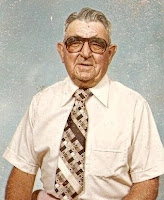We can be content in any circumstances
By Mike Haynes
Count
Alexander Rostov has grown up on a country estate in Russia, attending grand
balls, visiting St. Petersburg in his family’s four-horse carriage and relaxing
in the summer on the grass by the river.
 Then 1917 comes,
the czar and his family are executed, and aristocrats not only are not in
favor, they are in danger. The Bolsheviks who have taken over the huge country see
people such as the Count as a drain on society and a threat to the revolution.
Most of the Rostov family flees to other parts of Europe, but as the new
government confiscates their estate, the Count moves into the upscale Metropol
Hotel in Moscow, which the Communists have allowed to stay in business.
Then 1917 comes,
the czar and his family are executed, and aristocrats not only are not in
favor, they are in danger. The Bolsheviks who have taken over the huge country see
people such as the Count as a drain on society and a threat to the revolution.
Most of the Rostov family flees to other parts of Europe, but as the new
government confiscates their estate, the Count moves into the upscale Metropol
Hotel in Moscow, which the Communists have allowed to stay in business.
By 1922,
Rostov’s upbringing comes to the attention of the authorities. A noble such as
the Count could be sent to Siberia or even shot. But because he has written a
poem in college that had a revolutionary theme, the 30-something gentleman
receives a light sentence: house arrest for life in the Metropol.
That’s the
premise of “A Gentleman in Moscow,” the bestselling 2016 novel by Amor Towles. As
society is turned upside down and Russia becomes the USSR, the fictional count
survives by adjusting. The elaborate suite he has enjoyed for four years is
given to a government official, and he is escorted upstairs to a
100-square-foot room – his new quarters. He has to make split-second decisions
on what few family heirlooms and pieces of furniture he can take with him.
The Count
is resourceful. He discovers another unoccupied room that he can access through
his closet, and he makes a sort of den out of it. He is free to roam the
elegant hotel, and with no relatives in sight, the hotel staff becomes his
family. The desk clerk and waiters treat him just as they did when he had rooms
with floor-to-ceiling windows. He continues to eat gourmet food in the restaurant
and choose the proper wine for it. But he can only watch from a window as
people enter and exit the Bolshoi Ballet across the square.
The Count isn’t
as content as he appears, but he gets through times of despair. A connoisseur
of food, drink and manners, he becomes the head waiter of the still posh
restaurant. Then, in his late 40s, he becomes the only person who can take care
of a 6-year-old girl. He’s never had children, and he doesn’t know how to talk
to her or where she can sleep. He figures it out. Through three decades, he
adjusts and adjusts again.
 |
| John C. Haynes |
Believe it
or not, the Count reminds me of Grandad. John C. Haynes turned out to be quite
adept at adjusting, too. As a young man, he had worked at a couple of banks. He
ran a local oil company facility, then managed a ranch. In middle age, Grandad
was in the middle of community activity in our small town: president of the
Lions Club, on the board of the church and school board. He was elected mayor
and effectively was head of economic development, securing a hospital for the
town and traveling to places such as Florida to recruit workers for the local
undergarment factory.
Then, like everyone,
he suffered some losses. His wife, our Granny, died of cancer. His vision
started to get bad, and he eventually lost most of his sight. Not needing the
big house on the hill anymore, he moved alone into a
small one a few blocks away. Then a senior citizen, he joked that it was
perfect because his new house was halfway between the nursing home and the
cemetery.
Like the
Count, Grandad had to have been discouraged. But to those around him, he
usually was a jokester or a storyteller who made his 50-year-old reminiscences
funny and interesting. No longer in charge of the city’s budget, he kept his remarkable
math skills sharp by counting steps on his daily walks. He stayed busy by
picking up discarded baling wire on the ranch or collecting tin cans to sell.
Before he
moved to that nursing home and then to that cemetery, he made the most of life,
taking the next step in front of him, wherever it led.
The apostle
Paul told us that we can be content in any circumstances. Like the Count and
like Grandad, Paul wrote, “I know what it is to be in need, and I know what it
is to have plenty. I have learned the secret of being content in any and every
situation, whether well fed or hungry, whether living in plenty or in want. I
can do all this through him who gives me strength.” (Philippians 4:11-13, NIV)
When I
taught at Amarillo College, I put a Teddy Roosevelt quote on my office door,
hoping students who might be struggling would see it. The quote is simple:
“Do what
you can, with what you have, where you are.”

